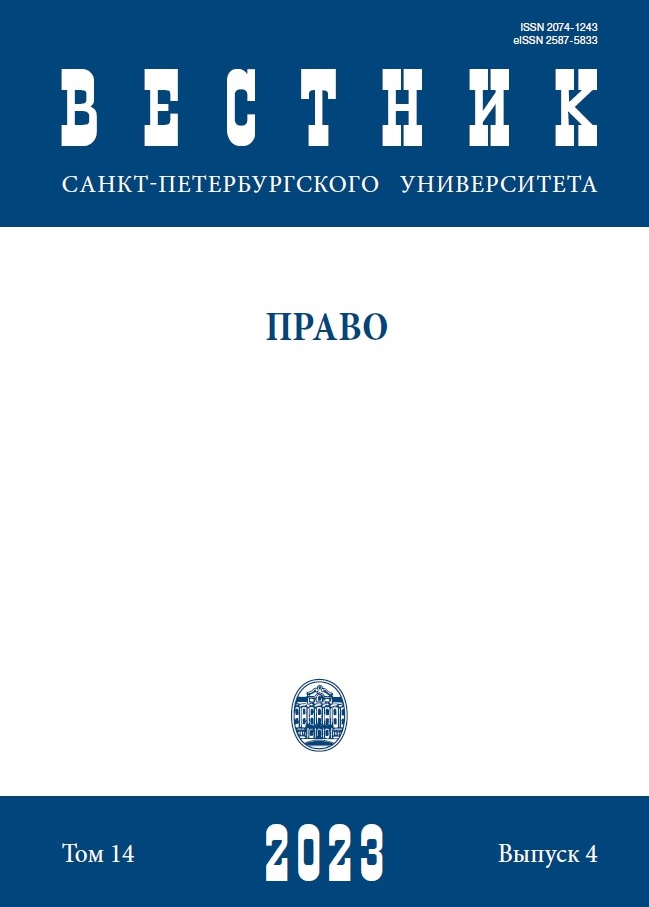Characteristic of legal communication: Addressers of legal acts
DOI:
https://doi.org/10.21638/spbu14.2023.403Abstract
The author started description of parties to legal communication in a previous article, on addressee of legal documents. In this item author focuses on the addressers of legal documents — those, who formally issue these documents. Summarizing specifics of addressers in different types of communication (norm-establishing and norm-realization) leads to the conclusion that addresser, issuing power acts, remains to be depersonalized comparing to private persons, acting on their own behalf. This could be explained by the legal principle that power belongs to an authority or to an official, but not to a certain person. Depersonalizing reaches maximum in the case of a statute. Abstract legislator being implied as an addresser of norm, stays in shadow, and this entails a number of practical problems. Author also concludes that Russian legal theory in fact does not recognize establishing legal norms as communication, finding communicative interaction only in realization of norms. While the will of the addresser (initiating legal consequences) is the content of a message in the legal communication, they are performative utterances (in the terminology of the speech acts theory of J. Austin). These acts do not transmit information, but form speech action. At the same time documents, issuing on behalf of private persons (mostly individuals), are often base on strict templates. Sometimes a person, who is formally the addresser of the document, do not takes part in its preparation and even is unable to understand it, therefore the document does not really reflects her or his will, which it formally represents. “Legal personality” of addresser of legal acts could not be a real object for analysis, because in many cases the addresser remains to be an abstract person while the speech of legal documents are so standardized that a few space for individual speech is left.
Keywords:
legal communication, addresser of communication, theory of speech acts, performative utternace, lyrical subject, language personality, legislator, acts of power, language of legal documents, intelligibility of legal acts
Downloads
References
Downloads
Published
How to Cite
Issue
Section
License
Articles of "Vestnik of Saint Petersburg University. Law" are open access distributed under the terms of the License Agreement with Saint Petersburg State University, which permits to the authors unrestricted distribution and self-archiving free of charge.






